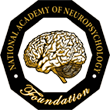Mild Cognitive Impairment (MCI) is often a transitional stage between normal aging and Alzheimer’s disease, the most common type of dementia. It represents a period where mild deficits in memory or other thinking abilities develop, but individuals are generally able to compensate to continue completing everyday activities. Approximately 10-15% of individuals diagnosed with MCI go on to develop Alzheimer’s disease each year, compared to 1-2% in the general population. While individuals diagnosed with MCI are at risk for further progression of cognitive impairment, not everyone will progress.
Risk Factors
Since MCI is typically an early stage of Alzheimer’s disease, aging is the biggest risk factor for developing MCI followed by family history and genetic factors. Determining which individuals will progress from MCI to Alzheimer’s disease and those who will not is a rather complex process. In general, having significant memory deficits and the presence of abnormal brain changes are associated with a higher likelihood of progressing from MCI to Alzheimer’s disease. However, growing evidence suggests that lifestyle factors may also play an important role, particularly those that relate to heart health. Thus, monitoring cognitive functioning over time is needed to accurately determine the stability of impairment(s).
Cognitive Symptoms
MCI commonly involves memory decline, but changes in other areas of thinking can be seen as well.
| COGNITIVE AREAS |
POSSIBLE SYMPTOMS |
| Memory |
Difficulty learning new material |
| Language | Problems coming up with words want to say |
| Visuospatial | Reduced ability to judge orientation of objects |
| Attention |
Easily distractible |
| Executive Function | Difficulty planning or organizing daily tasks Problems adjusting to changes in routine |
Subtypes of MCI
There are two subtypes of MCI based on the cognitive deficits observed. Although both subtypes can be transitional stages to Alzheimer’s disease, the amnestic type has been found to progress to Alzheimer’s disease more frequently than the non-amnestic type.
Amnestic MCI: Involves memory impairment on neuropsychological testing. Impairment in other cognitive areas can accompany the memory deficit.
Non-amnestic MCI: Involves impairment in areas of language, visuospatial, attention, and/or executive function. Isolated impairment in one area can be seen, though impairment in multiple areas is possible.
Treatments for MCI
There is no treatment that can cure MCI or halt progression to dementia. However, the disease modifying therapies used in Alzheimer’s disease may be useful to lessen memory problems that many individuals with MCI often present with. Additionally, early use of these therapies may slow progression of cognitive impairment in individuals who will later progress to dementia.
Other than disease modifying therapies, improving lifestyle factors are important as these could lower the risk of cognitive progression. In general, what is bad for the heart can also be detrimental to the brain. There is now much support that regular aerobic exercise (at least 3 days a week) and a Mediterranean-style diet are wellness choices that can reduce the risk of developing Alzheimer’s disease in some individuals.


